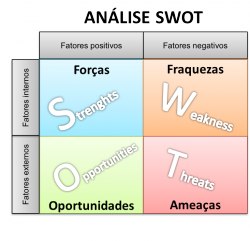FUNAI is the acronym for National Indian Foundation, a Brazilian government agency which handles all the questions regarding the indigenous communities and to their lands.
FUNAI was created through Law No. 5.371, of December 5, 1967, to protect and support indigenous peoples, promoting sustainable development policies for indigenous populations.
The purposes of FUNAI include the monitoring of actions aimed at protecting the health and education of the indigenous people, the dissemination of their cultures, in addition to conducting surveys to collect statistical data on the indigenous population in Brazil.
It is also part of FUNAI's obligations to ensure that indigenous peoples and organizations participate in State programs that define policies regarding them.
FUNAI's mission is to promote and protect the rights of indigenous peoples, preserving their cultures, languages and traditions, in addition to monitoring their lands to prevent attacks by loggers, miners and others, preventing usurpation practices of the riches that belong to the indigenous heritage and that jeopardize the preservation of the communities.
According to Decree No. 7,778, of July 27, 2012, which approves the Statute and the Demonstrative Table of the Positions in Commission and of the Gratified Functions of the Fundação Nacional do Índio, Funai is responsible for goal:
I - protect and promote the rights of indigenous peoples, on behalf of the Union;
II - formulate, coordinate, articulate, monitor and ensure compliance with the Brazilian State's indigenous policy, based on the following principles:
a) recognition of the social organization, customs, languages, beliefs and traditions of indigenous peoples;
b) respect for the indigenous citizen, their communities and organizations;
c) guarantee of the original right, the inalienability and unavailability of the lands they traditionally occupy and the exclusive usufruct of the wealth existing therein;
d) guarantee to isolated indigenous peoples of the exercise of their freedom and their traditional activities without the obligation to contact them;
e) guarantee of protection and conservation of the environment in indigenous lands;
f) guaranteeing the promotion of social, economic and cultural rights to indigenous peoples;
g) guaranteeing the participation of indigenous peoples and their organizations in State bodies that define public policies that concern them;
III - administer the assets of the indigenous heritage, except those whose management has been attributed to the indigenous people or their communities, pursuant to the provisions of art. 29, and may also manage them by express delegation of the interested parties;
IV - promote and support surveys, censuses, analyses, studies and scientific research on indigenous peoples, aiming at the valorization and dissemination of their cultures;
IV - promote and support surveys, censuses, analyses, studies and scientific research on indigenous peoples, aiming at the valorization and dissemination of their cultures;
V - monitor the actions and health care services of indigenous peoples;
VI - monitor the actions and services of differentiated education for indigenous peoples;
VII - promote and support sustainable development in indigenous lands, according to the reality of each indigenous people;
VIII - awaken, through dissemination instruments, the collective interest for the indigenous cause;
IX - exercise police power in defense and protection of indigenous peoples.
Read about the Indigenous Culture.


